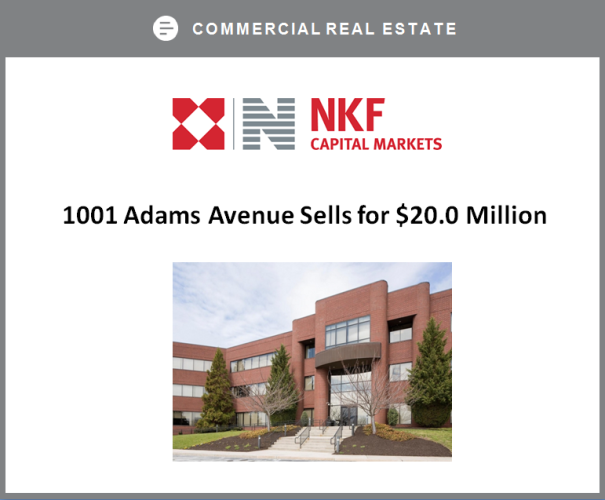
Eric Pelletier
In 1868 The Martindale Company first produced the Martindale Legal Directory, a predecessor to the Martindale-Hubbell Legal Directory. The Martindale Legal Directory’s stated purpose was “to furnish to lawyers, bankers, wholesale merchants, manufacturers, real estate agents, and all others…the address of one reliable law firm, one reliable bank, and one reliable real estate office in every city in the United States…” See http://www.martindale.com/About_Martindale-Hubbell/index.aspx. Martindale-Hubbell Legal Directory’s rating service is perhaps the best-known peer-review ratings system in the American legal community. Firms and attorneys used Martindale’s “AV” and “BV” rating systems to tout their reputation, and this was an early form of accolade advertising in the legal field.
The marketplace for legal advertising has broadened greatly. These days, law firm websites with accolade advertisements seem to be ubiquitous. “Honors” and awards such as “Super Lawyers,” “Rising Stars,” and “Best” lawyers are presented to lawyers by magazines and other publications, and those honors and awards frequently make their way onto law firm websites. Accolades such as being a “best lawyer” or a “super lawyer” arguably are implicit comparisons of a “super lawyer’s” skill or accomplishments to those lawyers who have not received similar accolades. The same may be true for ratings such as Martindale Hubble’s AV and BV ratings.
The proliferation of accolade advertising has led to enhanced restrictions on advertising in state rules of professional conduct. Attorneys should be careful to review relevant ethical rules that govern advertising. Typically, state rules that pertain to accolade advertising prohibit a lawyer from comparing his or her skills to others lawyers. The rules often require there to be some way for the lawyer to factually substantiate the comparison. For example, Maryland Rule 19-307.1 provides:
An attorney shall not make a false or misleading communication about the attorney or the attorney’s services. A communication is false or misleading if it:
(a) contains a material misrepresentation of fact or law, or omits a fact necessary to make the statement considered as a whole not materially misleading;
(b) is likely to create an unjustified expectation about results the attorney can achieve, or states or implies that the attorney can achieve results by means that violate the Maryland Attorneys’ Rules of Professional Conduct or other law; or
(c) compares the attorney’s services with other attorneys’ services, unless the comparison can be factually substantiated.
Md. Rule 19-307.1.
Recently, the New Jersey Supreme Court Committee on Attorney Advertising issued a “Notice to the Bar” which greatly restricts attorneys’ ability to use accolades in advertising. (Note that while broader than Maryland’s Rule 7.1, New Jersey’s Rule 7.1 contains the same core components as Maryland Rule 7.1) In order to do so, the lawyer must first ascertain whether the awarding organization made any “inquiry into the [recipient’s] fitness.” If the award passes this first element of the newly-proposed test, the advertisement must include a description of the standard or methodology upon which the award was conferred, as well as provide the name of the conferring organization. Next, the lawyer must include a disclaimer that the advertisement was not approved by the Supreme Court of New Jersey. All of this additional information must be placed in the advertisement in proximity to the award in any advertisement. Finally, the advertisement must accurately indicate that the lawyer was included in a listing named “The Best Lawyers” or “Super Lawyers”, and not manipulate the accolade to claim to be a “super” lawyer or the “best” lawyer.
New Jersey appears to be a state that is at the most conservative end of the spectrum. In the past, the New Jersey Supreme Court’s Committee on Attorney Advertising has been very zealous in regulating attorney advertising. At times, the Committee has been overzealous. See Dwyer v. Cappell, 762 F.3d 275 (3d Cir. 2014) (voiding Committee’s restriction on advertising as First Amendment violation). At the other end of the spectrum is Florida. Florida’s counterpart to Rule 7.1 contains a comment that states:
Awards, honors and ratings are not subjective statements characterizing a lawyer’s skills, experience, reputation or record. Instead, they are statements of objectively verifiable facts from which an inference of quality may be drawn. It is therefore permissible under the rule for a lawyer to list bona fide awards, honors and recognitions using the name or title of the actual award and the date it was given. If the award was given in the same year that the advertisement is disseminated or the advertisement references a rating that is current at the time the advertisement is disseminated, the year of the award or rating is not required.
Fl. St Bar Rule 4-7.14. Clearly, Florida’s rules on advertising are more flexible than New Jersey’s rules.
Virginia’s Rule 7.1, and comment 5 thereto, specify that unsubstantiated comparisons of the lawyer’s services or fees to another lawyer’s services or fees are misleading if the unsubstantiated comparison is phrased so as to lead a reasonable person to conclude that the comparison could be substantiated. Pennsylvania’s approach to Rule 7.1, and its comments also follow this standard. The District of Columbia’s Rule 7.1 prohibits assertions about the lawyer or the lawyer’s services “that cannot be substantiated.” New York’s Rule 7.1 is elaborate, but in pertinent part, prohibits statements in advertisements that compare a lawyer’s services with the services of other lawyers or describing the quality of the lawyer’s work, unless it can be factually supported as of the date of dissemination and it is accompanied by a disclaimer that states: “Prior results do not guarantee a similar outcome.”
In conclusion, attorneys should be cautious when including accolades on their websites and other advertisements. Given the ever-changing ethics landscape, attorneys should familiarize themselves with requirements imposed by the courts of the states where they are licensed, and avoid advertising that makes comparisons that cannot be substantiated.
If you have questions or comments about this article or any issue related to legal ethics please feel free to contact me.
For information about Offit Kurman’s Legal Ethics and Attorney Representation Practice Group, click here.
Eric Pelletier is licensed to practice law in Maryland and the District of Columbia, and in several federal courts. This article is for research purposes only and is not intended to provide legal advice.
ABOUT ERIC PELLETIER
Mr. Pelletier is a commercial litigation attorney who successfully defends clients in complex, high value commercial disputes, often resolving claims through pretrial motions. In addition to his work in commercial litigation, Mr. Pelletier regularly defends companies in various types of labor and employment claims. Mr. Pelletier also handles estate litigation and insurance defense, coverage, and recovery matters.
ABOUT OFFIT KURMAN
Offit Kurman is one of the fastest-growing, full-service law firms in the Mid-Atlantic region. With over 135 attorneys offering a comprehensive range of services in virtually every legal category, the firm is well positioned to meet the needs of dynamic businesses and the people who own and operate them. Our eleven offices serve individual and corporate clients in the Virginia, Washington, DC, Maryland, Delaware, Pennsylvania, New Jersey, and New York City. At Offit Kurman, we are our clients’ most trusted legal advisors, professionals who help maximize and protect business value and personal wealth. In every interaction, we consistently maintain our clients’ confidence by remaining focused on furthering their objectives and achieving their goals in an efficient manner. Trust, knowledge, confidence—in a partner, that’s perfect.
You can connect with Offit Kurman via our Blog, Facebook, Twitter, Google+, YouTube, and LinkedIn pages. You can also sign up to receive Law Matters, Offit Kurman’s monthly newsletter covering a diverse selection of legal and corporate thought leadership content.
MARYLAND | PENNSYLVANIA | VIRGINIA| NEW JERSEY | NEW YORK | DELAWARE | WASHINGTON, DC






